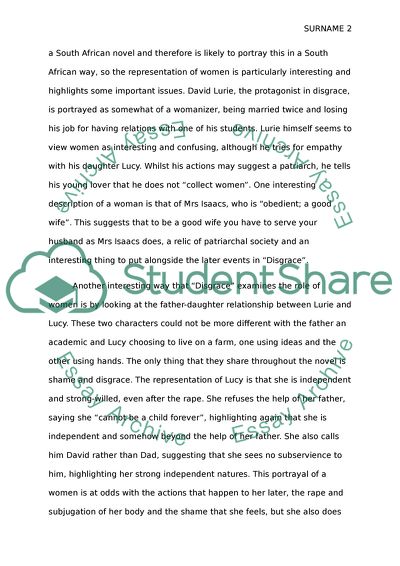Cite this document
(“The representation of women in Disgrace by J.M. Coetzee Research Paper”, n.d.)
Retrieved from https://studentshare.org/literature/1591656-the-representation-of-women-in-disgrace-by-j-m-coetzee
Retrieved from https://studentshare.org/literature/1591656-the-representation-of-women-in-disgrace-by-j-m-coetzee
(The Representation of Women in Disgrace by J.M. Coetzee Research Paper)
https://studentshare.org/literature/1591656-the-representation-of-women-in-disgrace-by-j-m-coetzee.
https://studentshare.org/literature/1591656-the-representation-of-women-in-disgrace-by-j-m-coetzee.
“The Representation of Women in Disgrace by J.M. Coetzee Research Paper”, n.d. https://studentshare.org/literature/1591656-the-representation-of-women-in-disgrace-by-j-m-coetzee.


